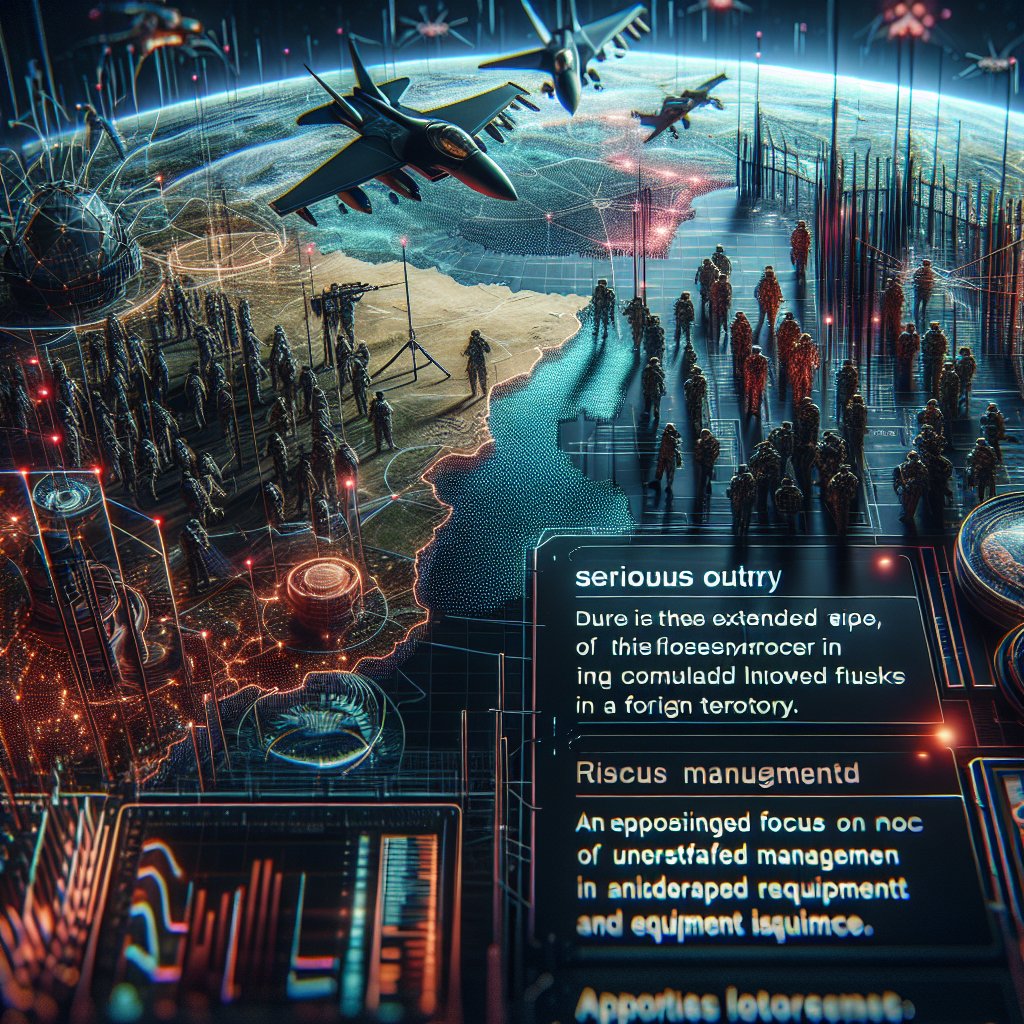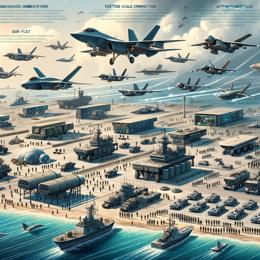Image created by AI
Mismanagement and Resource Constraints Plague SANDF in DRC Mission and Border Security
The South African National Defence Force (SANDF) is under scrutiny for its operations beyond domestic borders, particularly in the Democratic Republic of Congo (DRC), while challenges at home, such as porous borders and potential security threats from Mozambique, remain inadequately addressed. The situation is made dire by a combination of financial hurdles, equipment obsolescence, and strategic missteps.
Fatal incidents reinforcing the precarious position of South African troops in foreign territories have galvanized public and political attention. Recent mortar attacks that killed two soldiers in the DRC highlight the perils faced by the 2,900 SANDF personnel tasked with countering the M23 rebel uprising. The incident coincides with revelations of an expired maintenance contract from the state-owned military technology conglomerate Denel, compromising the operational readiness of helicopter fleets critical to the SANDF’s missions.
Defence authorities confront escalating operational costs that overshadow severely constrained budgets. Reports indicate a disproportionate expenditure on personnel emoluments over essential aspects such as equipment maintenance and technological enhancements. Alarmingly, less than a third of the budget is spent on equipment sustenance and modernization, though the 2015 defence review stipulates otherwise. Consequently, much of the SANDF's arsenal is described as antediluvian, with helicopters essential for combat and medical evacuations, like the Oryx, scarcely available for deployment.
The presence of SANDF soldiers in the volatile eastern region of the DRC raises questions around national interest and the strategic significance of this external engagement. The DRC mission is an extensively costly undertaking, which the United Nations partially subsidizes. Yet, this arrangement has not precluded significant financial deficit, and South Africa anticipates shouldering the burden amid unclear fiscal compensation frameworks. A more pressing concern, however, hinges on the ramifications of an under-resourced and over-extended military at home. There is a growing clamour that national resources should pivot toward the development of domestic defences, particularly along the border with Mozambique, considering the burgeoning threat from insurgents with potential transnational linkages.
The sustainability of the current deployment model and reserve force utility is gravely questionable against the backdrop of the expanding need for internal deployments. With manifold domestic imperatives demanding military intervention, from policing support to safeguarding critical infrastructure, the SANDF's operational bandwidth is stretched to a breaking point.
The political landscape complicates the matter as there is apparent lack of consensus and clarity among defence, finance, and state-owned enterprise ministries about the direction of military deployments and investments. This confusion permeates the leadership echelons, with the President's declarations of resource adequacy for military operations contradicting ground realities. Misaligned priorities and a failure to revitalize critical aspects of the SANDF's operational strategy have engendered a scenario where soldiers are potentially sacrificed in ill-conceived foreign undertakings, while urgent national security concerns remain neglected.
Defense analysts and the opposition are univocal about the pressing need to reevaluate and recalibrate South Africa's defence posture. They advocate for a withdrawal from engagements of disputable value to South African national interests. They also emphasize the prioritization of investments in modernizing and maintaining key military assets, fortifying border security, and addressing the emergent security challenge posed by the insurgency close to Mozambique's liquid natural gas fields.
SANDF stands at a crossroads where decisive policy action and strategic realignment are imperative. This necessitates a harmonized political will to usher in reforms that ensure the sustainable functionality of the military and address the nation’s security imperatives effectively.










